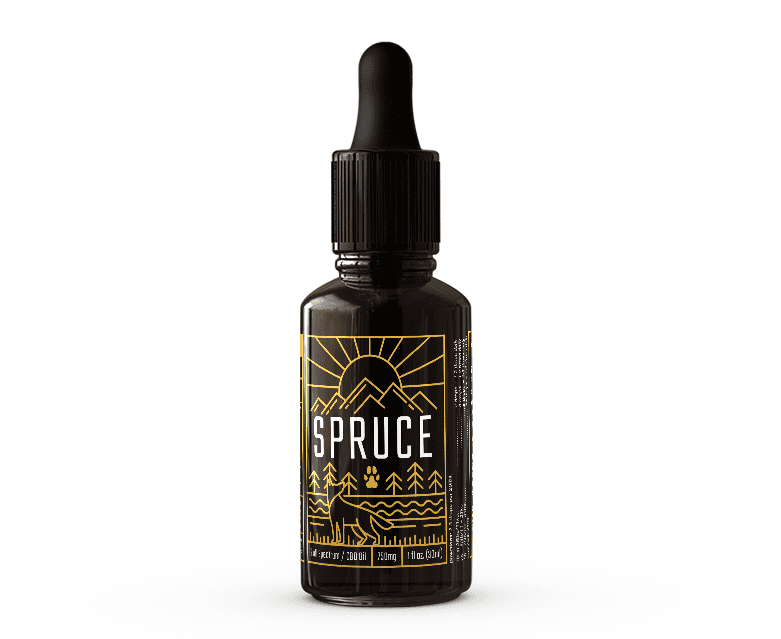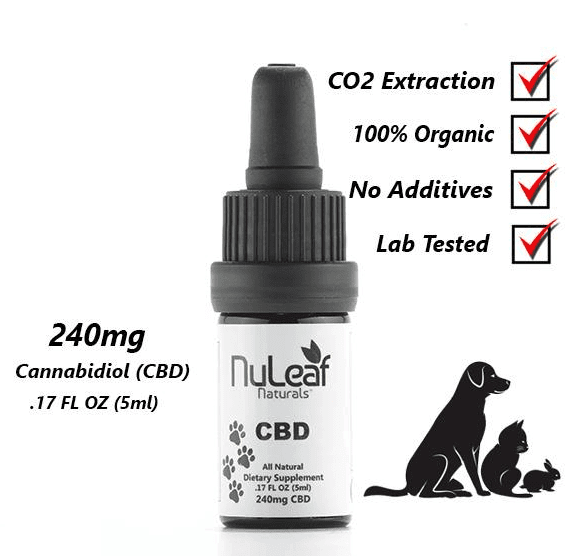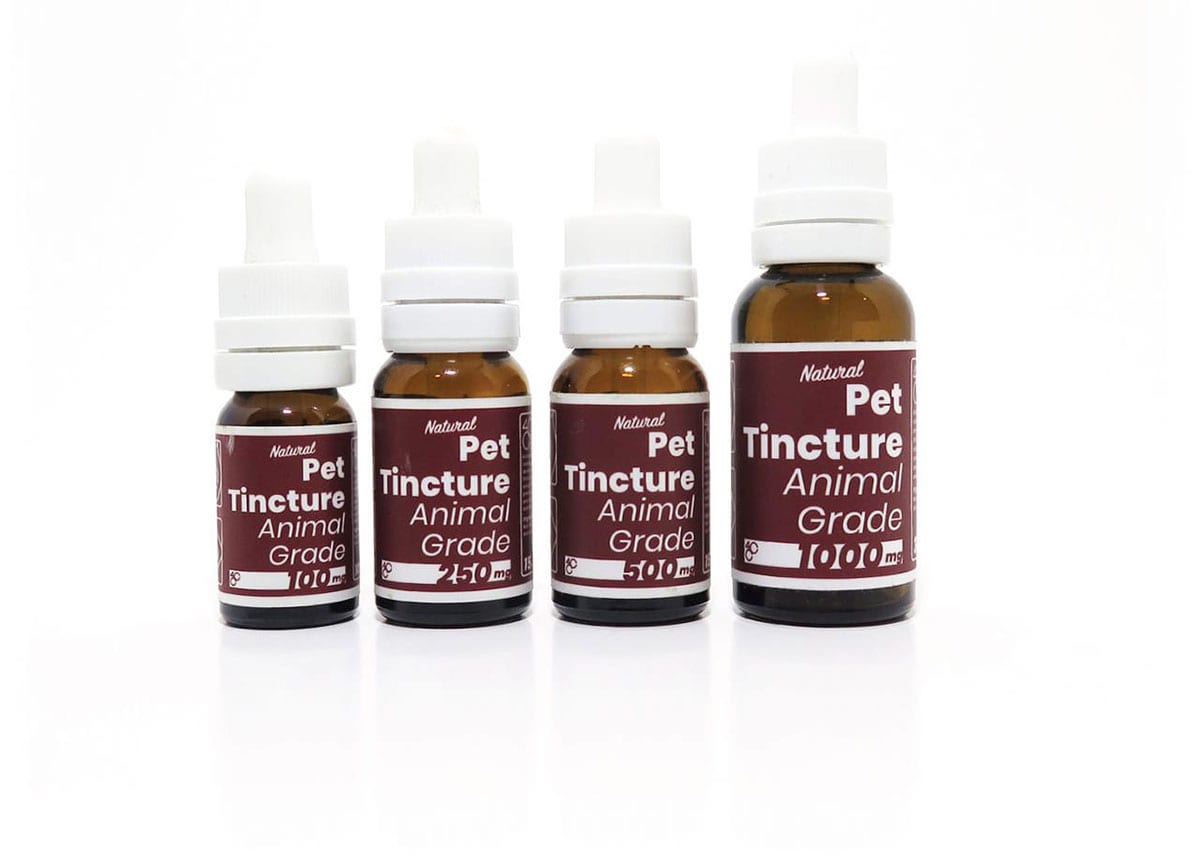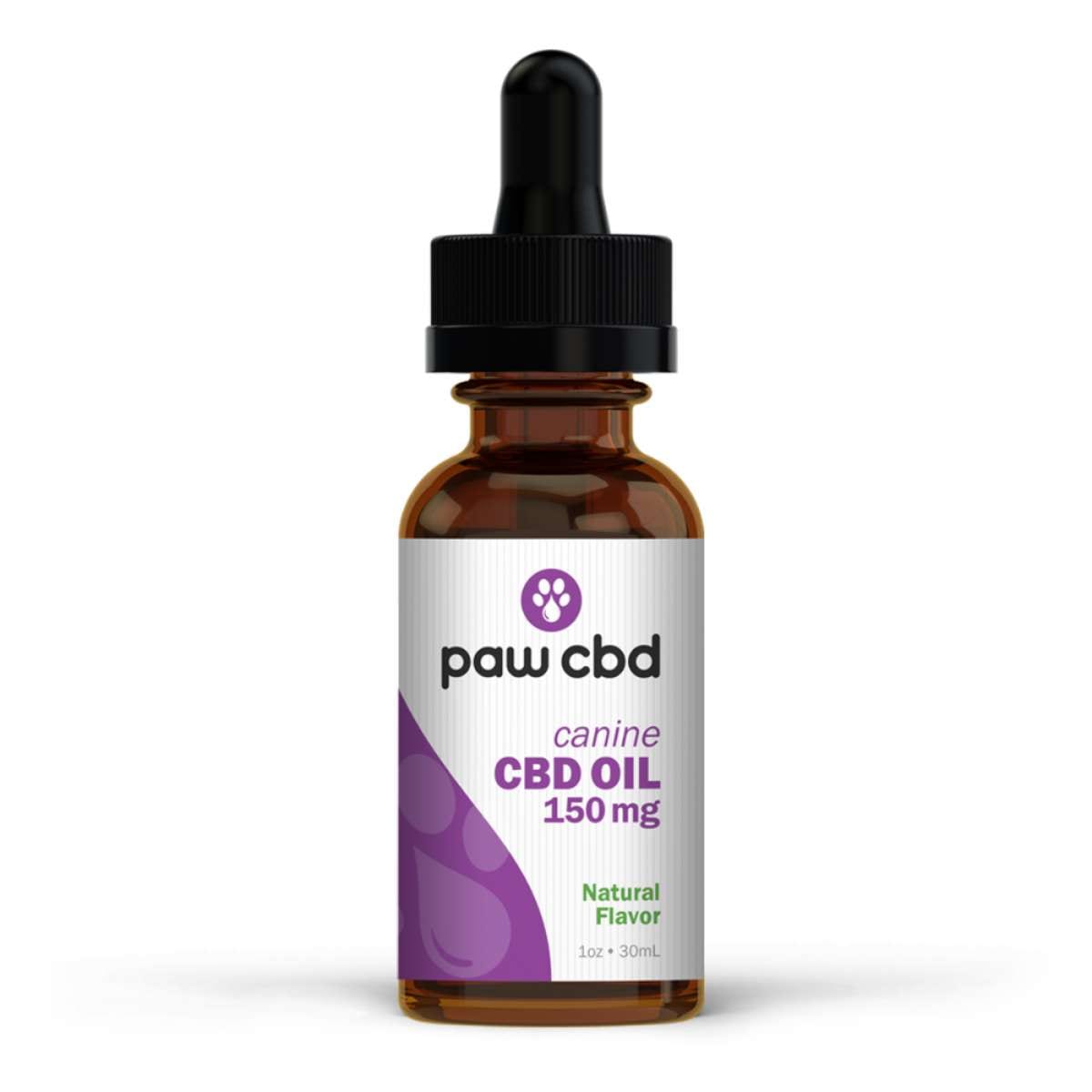Best CBD Oil for Dog Allergies
Is your dog experiencing allergy symptoms such as itching, sneezing, or wheezing? Read on and find out how cannabidiol (CBD) oil and other CBD products may help promote your dog’s wellness and relieve allergen-induced symptoms.
Best CBD Oil for Dog Allergies 2025
- Spruce Dog CBD Oil 750mg Best Overall
- Honest Paws Wellness Oil for Dogs Best Immunity Support for Dogs
- Nuleaf Naturals Pet CBD Oil Best Organic
- 4 Corners Cannabis Pet Tincture Best High Potency
- cbdMD Pet CBD Oil Tincture for Dogs Best Range
Compare the Best CBD Oil for Dog Allergies in 2022
1. Spruce Dog CBD Oil 750mg
cbdc overall score
4.8
CBDC Evaluation Table/Score
| Pros | Cons |
|---|---|
|
Same as human lab grade, full spectrum CBD oil |
No other flavors |
|
Easier on Dog's digestion |
|
|
Made from 100% organic and natural ingredients |
Overview
Spruce’s dog-friendly CBD has been specially formulated for dogs. Instead of hemp seed oil for the carrier oil, the product contains coconut oil, which is generally easier on the digestion for dogs. The taste is also milder with no flavorings, making it more likely that dogs will eat it with their food.
Using Spruce CBD for dogs is simple. All owners have to do is sprinkle the desired dose on the dog’s food at mealtime once or twice a day. Each dose should consist of about two to three drops per 20 pounds of dog weight.
2. Honest Paws Wellness Oil for Dogs
cbdc overall score
4.1
CBDC Evaluation Table/Score
| Pros | Cons |
|---|---|
|
Product offering is extensive |
Most products were not tested for solvents or mycotoxins |
|
Products are made from 100% organic, non-GMO, and locally grown hemp |
Limited information on the company |
|
30-day money-back guarantee |
Available in the US only |
|
Free shipping for orders over $49.95 |
|
|
Expedited delivery option is available |
Overview
A calming full-spectrum hemp oil that combines naturally occurring CBD with other ingredients for healthy immunity, calm moods, and a healthy brain.
3. Nuleaf Naturals Pet CBD Oil
cbdc overall score
5.0
CBDC Evaluation Table/Score
| Pros | Cons |
|---|---|
|
Pure CBD hemp |
No other flavors |
|
All natural |
Overview
CBD for dogs, cats and other four-legged friends! Our product is concentrated to approximately 50mg cannabinoids per milliliter of oil. While this product is designed for pets, it’s great for humans, too.
4. 4 Corners Cannabis Pet Tincture
cbdc overall score
5.0
CBDC Evaluation Table/Score
| Pros | Cons |
|---|---|
|
Has a wide variety of CBD strengths |
A bit expensive |
|
Free shipping on $100 and up |
Incomplete lab test results |
Overview
4 Corners Cannabis Pet Tinctures are generous on their options since there are different sizes and strengths available for you exact needs. The flavor peanut butter is available perfect for pets who are picky when it comes to eating.
5. cbdMD Pet CBD Oil Tincture for Dogs
cbdc overall score
3.6
CBDC Evaluation Table/Score
| Pros | Cons |
|---|---|
|
Same CBD Oil benefits as for humans |
Low terpene and cannabinoid profile |
|
No THC Animal-specific products (dogs, cats, horses) |
|
|
Made from premium CBD from non-GMO USA hemp |
Overview
With nothing but MCT oil combined with CBD oil sourced from U.S. hemp that is grown using organic farming methods, these CBD Oil Tinctures for Dogs can be added to their favorite foods while still providing the same effects that you enjoy. We have two flavors to choose from: Natural and Peanut Butter.
How CBD Helps With Dog Allergies
CBD (cannabidiol) is among over one hundred compounds known as cannabinoids found in the cannabis plant(1).
The purported anti-inflammatory and antioxidant properties of CBD(2) may help relieve dog allergy symptoms such as itchiness(3).
CBD may increase a dog’s inflammatory response(4) by interacting with the endocannabinoid system (ECS). The cannabinoid’s anti-inflammatory properties may help relieve symptoms produced by allergen triggers.
Researchers have historically conducted a significant percentage of endocannabinoid system studies on the human ECS.
However, researchers have recently also investigated the possible effects of CBD on animals’ ECS to target health conditions and their contributing factors, including inflammation, pain, and anxiety(5).
A canine’s ECS consists of endogenous ligands, cannabinoid receptors, and enzymes(6). Endogenous ligands are naturally occurring small molecules.
The two primary receptors in a dog’s ECS include CB1 and CB2 receptors. These ECS receptors combine with plant-based phytocannabinoids, including CBD.
CB1 and CB2 receptors are involved in various essential biological processes, including inflammation, pain, anxiety, immune function, and metabolic regulation.
CB1 receptors are present in salivary glands, hair follicles, skin, and the hippocampus in dogs. These receptors are believed to be able to control pain.
Meanwhile, CB2 receptors up-regulate numerous anti-inflammatory pathways, including inhibiting pro-inflammatory activity within T lymphocytes (T-cells)(7).
T-cells are stem cell-derived cells in the immune system that help protect a dog’s body from infection.
The purported anti-inflammatory properties of CBD result from its interaction with the CB1 and CB2 receptors of the ECS.
Meanwhile, arachidonic acid is a significant precursor in the manufacturing of anti-inflammatory endocannabinoids within the canine’s body(8). Arachidonic acid is a fatty acid in animal fats closely connected to metabolism.
The process involving arachidonic acid helps combat the degradation of anandamide, leading to pain and inflammation(9). Anandamide is a fatty acid neurotransmitter contained in humans, animals, and plants.
The ECS regulates several bodily functions in mammals, including the central nervous system (CNS) and immune system.
Allergens can affect the ECS’ proper function by triggering the immune system’s response to a perceived threat, such as fleas, pollen, or dog food ingredients(10).
Cannabis-derived phytocannabinoids interact with an animal’s ECS as ligand molecules(11). Researchers continue to investigate the mechanisms of this process.
Phytocannabinoids may also bolster the ECS’ protective function. A 2019 study published in the Antioxidants journal reported that CBD may produce antioxidant effects in humans by reducing oxidative stress(12).
Meanwhile, a 2021 meta-analysis published in the Antioxidants journal evaluated animal and clinical studies to determine the potential therapeutic benefits of dietary antioxidants for allergic rhinitis(13).
Allergic rhinitis is an allergy-induced inflammation of the nasal septum.
Additional research is warranted to determine whether CBD produces similar antioxidant effects in other mammals, such as dogs. This effect may potentially help relieve and reduce the symptoms of allergies in dogs.
Benefits and Uses of CBD for Dog Allergies
Human and animal research suggests that CBD may provide anti-inflammatory(14), antioxidative(15), and analgesic(16) properties. Such purported biological effects of CBD may help relieve symptoms of canine allergies.
The following can trigger a dog’s skin itchiness(17):
- Allergens, including those that cause skin allergies like flea allergy dermatitis
- Food allergies and sensitivities, such as gluten intolerance
- Environmental allergens such as dust, pollen, and mold
Allergy triggers can produce cutaneous allergic reactions such as atopic dermatitis(18), inducing red, dry, inflamed, flaky, and itchy skin symptoms.
Additionally, all skin allergies among dogs include a risk of secondary infection(19). Bacterial or yeast infection may consequently occur after the dog licks, scratches, or bites its skin.
A 2012 dog study investigated how CBD may relieve symptoms of atopic dermatitis(20).
The researchers reported that CBD oil seemed to improve skin health and reduce itchiness. They also hypothesized that CBD’s anti-inflammatory properties may help relieve symptoms of allergic skin diseases.
Meanwhile, an earlier human study led by Meliha Karsak showed that the ECS plays a protective role in allergic contact dermatitis(21).
The researchers suggested that particular cannabinoids can combat allergic reactions(22). They also hypothesized that the compounds may provide therapeutic effects for contact skin allergies.
The study mentioned was conducted on human subjects. Further studies are required to show whether CBD for dogs may provide similar therapeutic effects due to the mammals having analogous ECS structures.
Dog allergies may also produce watery discharges in the nose or eyes. Allergens such as pollen, mites, foods, drugs, and chemicals may trigger nasal discharges(23).
Allergic rhinitis may produce symptoms such as runny noses when the body overreacts to stimuli(24).
An animal study published in Veterinary Sciences suggested that CBD may help strengthen a dog’s immune system(25). Thus, CBD may help relieve symptoms of allergic rhinitis in dogs by bolstering their biological defense mechanisms.
Still, more research is needed to substantiate CBD’s effects on canine immunity as a possible method to help relieve allergy symptoms such as nasal or ocular discharge.
Meanwhile, a 2014 animal study on animal models examined the effects of cannabis-sourced terpenes on rats with allergies(26).
Terpenes are aromatic compounds contained in plants such as hemp plants.
In the study, the terpenes seemed to reduce allergy symptoms in rats. However, more research is needed to determine whether CBD-derived terpenes produce similar effects in dogs.
Dog allergies may trigger asthmatic symptoms. A dog’s immune system can become overactive as a response to allergens.
Allergen inhalation tightens a canine’s airways, resulting in a breathing condition called allergic asthma.
Asthma symptoms in dogs include(27):
- Heavy, long-term, or wide-mouth panting
- Coughing or wheezing
- Seeming out of breath
- Pale or blue gums
- Loss of appetite
A 2018 human study suggested that CBD may reduce airway inflammation in allergic asthma(28).
The researchers hypothesized that the mechanisms of action included CB1 and CB2 signaling, although more research is needed regarding their effects on lung inflammation.
Results of research and clinical trials on the potential use of CBD to help relieve asthmatic symptoms in dogs are inconclusive(29). One reason is the need for Food and Drug Administration (USFDA) approval and compliance to conduct such studies.
What Are Dog Allergies?
Canine allergies develop as the immune system’s misguided reaction to various foreign substances, such as fleas, some types of food, and environmental allergens(30).
Allergy symptoms among dogs may include hives, itchiness, inflamed skin, swelling of the face, sneezing, vomiting, runny eyes, and itchy ears(31).
Dogs may also experience seasonal allergies due to high pollen counts in the springtime, for instance.
Consulting your dog’s veterinarian before administering CBD products is advisable. They can guide you on proper usage, dosage, and possible drug interactions.
How Dogs With Allergies Can Take CBD Oil
When searching for products such as the best CBD oil for dogs, several options are available, including:
- CBD oil and CBD tinctures
- Oral CBD (CBD capsules, CBD softgels, CBD tablets)
- Topical CBD (CBD lotions, CBD creams, CBD salves, CBD balms)
- CBD dog treats
Here are some main options for administering CBD to dogs:
Oral Administration
This option allows you to administer the recommended CBD dose. Adhering to the product’s label for the number of drops of CBD oil is critical. Dosages may be determined by factors such as your dog’s weight, size, and health condition.
Research shows that oral administration of CBD to dogs may produce high efficacy related to absorption(32). CBD oil tinctures are one option.
CBD and Dog Food Blend
One noteworthy benefit of this option is the dog consumes the entire dosage of hemp extract if it consumes its entire meal. The food may conceal the taste and texture of the CBD product, such as CBD’s natural, earthy flavor.
A caveat to consider is that wet foods may not blend thoroughly with hemp CBD, significantly altering the food’s taste and appearance.
Commence with a small CBD dosage when combined with food, gradually increasing the dosage if it is well tolerated.
CBD and Dog Treat Mixture
Treats like peanut butter with a creamy consistency blend better with CBD’s chemical compounds than those with a firmer texture like biscuits.
Ensure you use a dropper to add the recommended dosage of CBD oil for safety and efficacy.
It is also advisable to use organic CBD treats with natural ingredients and minimal additives and preservatives. These options help optimize the health benefits of CBD for your furry friend.
CBD Oil as a Treat
This option allows the dog to perceive CBD in a positive way. CBD dog biscuits and CBD dog cookies are some CBD treats with natural extracts from hemp plants.
Apply the CBD dosage to the treat, and then allow the treat to absorb the oil for one or two minutes.
A recent study showed that CBD-infused soft chews served twice daily to dogs produced a 96.7% average acceptance rate(33).
It is advisable to consult your dog’s veterinarian before supplying it with any CBD product.
These general guidelines for administering CBD to dogs may help achieve optimum results:
- Select CBD products produced specifically for dogs
- Provide CBD to your dog, combining it with its breakfast or dinner
- Consider full-spectrum CBD oil with a full range of hemp-sourced compounds
- Follow the dosage indicated on the product label
CBD Oil Dosage for Dogs With Allergies
In the 2019 study mentioned above, researchers examined how dogs reacted to a 12-week regimen of CBD-infused soft chews fed twice daily(34).
In the study, the researchers fed each dog 2mg of CBD per kilogram of body weight. Thus, a 13.6kg (30-pound) dog would receive approximately 27mg of CBD.
Begin with a low dosage, and then gradually increase if it remains well tolerated.
How Long CBD Takes to Help With Dog Allergies
No studies have been conducted on the duration of time required for the efficacy of CBD for dog allergies to commence.
According to one study, CBD produced a 13% to 19% bioavailability in three of six dog subjects following oral administration(35).
Bioavailability is the extent that a particular substance or drug becomes entirely available for an intended biological destination.
However, additional research is needed on larger sample sizes and different application forms, such as topical.
How Long CBD Will Help With Dog Allergies
No research has been conducted regarding the efficacy duration of CBD for dog allergies.
However, a medical study published in the Frontiers in Veterinary Science investigated CBD’s efficacy in dogs with osteoarthritis(36). Symptoms of osteoarthritis among dogs include joint pain and stiffness.
Researchers reported the CBD dosages produced an elimination half-life of 4.2 hours. Half-life refers to the time required for a substance to reduce to one half its quantity.
Various factors may impact the efficacy duration of CBD in dogs. For instance, senior dogs are more likely than younger dogs to experience digestive illnesses.
Risks and Side Effects of Using CBD for Dog Allergies
A 2019 study evaluated the effects of single-dose, high-CBD hemp products on cats and dogs over 12 weeks(37).
Two milligrams of CBD per kilogram of body weight administered orally seemed to produce no detrimental medical issues in healthy canines(38).
Meanwhile, in a randomized study published in 2021, researchers conducted a safety evaluation of CBD administered orally in healthy dogs(39).
Researchers administered a daily dosage of CBD isolate in MCT oil ranging from 1mg to 12mg per kg of body weight,
The CBD dosages were well tolerated among healthy adult dogs. However, the researchers observed no significant alterations in measured safety outcomes throughout the study(40).
No scientific studies exist on the potential side effects of CBD on canines. Still, based on research conducted on human subjects, dogs may experience similar side effects as humans, including(41):
- Dry mouth
- Drowsiness
- Lower blood pressure
Pet owners should consult their dog’s veterinarian before starting to use CBD products. Dog owners, upon the advice of their veterinarians, should also follow the prescribed dosage for particular CBD products.
Careful monitoring should follow CBD administration to monitor how well tolerated the CBD product is for the dogs.
How to Choose the Best Pet CBD Oil for Dog Allergies
Due to the numerous CBD products on the market, dog owners may struggle to locate the best CBD for pets.
Here are some features to consider when choosing the best CBD oil for your dog’s allergies.
- Overall quality: High-quality CBD oils use only organic hemp with no genetically modified organisms (non-GMO).
- Hemp source: Local hemp is an excellent source. States that permit legal hemp cultivation include Colorado, Oregon, and Kentucky(42).
- Type of CBD: Full-spectrum CBD contains a full range of cannabis-derived compounds.
Broad-spectrum CBD oil consists of a wide range of compounds, although it typically contains no tetrahydrocannabinol (THC).
CBD isolates are pure CBD.
- Carrier oil: Versatile carrier oils like hemp-seed oil and coconut oil help dilute essential oils.
- Customer service: Some options include free or discounted shipping and a money-back guarantee.
- Third-party lab testing: A certificate of analysis (COA) should include CBD concentration, CBD potency, all ingredients, and the potential presence of pesticides, heavy metals, and mycotoxins.
Mycotoxins are toxic compounds produced by particular molds.
- National Animal Supplement Council (NASC) Seal of Quality Assurance: The Quality Seal program is the focus of NASC’s efforts to help standardize and elevate the animal health supplement industry(43).
NASC awards the Quality Seal to companies that utilize rigorous standards in proving the quality and safety of their products(44).
Legality of CBD
Some veterinarians in the USA are hesitant to recommend CBD because they believe additional research is required to ensure its efficacy and safety(45).
CBD for dogs is not approved by the FDA(46). However, the FDA has also not approved common dietary supplements for pets, such as fish oil. Neither has FDA approved most human-approved prescription drugs that veterinarians frequently prescribe for animals.
Before purchasing CBD products for pets, research any state restrictions imposed on cannabis products for veterinary practices(47).
You can check the American Veterinary Medical Association (AVMA)’s February 2021 State Legislative Update for the latest on legislations concerning cannabis (marijuana and hemp) use in some states(48).
Product Frequently
Asked Questions
-
How can CBD help with dog allergies?
Studies hypothesize that CBD may produce anti-inflammatory effects in dogs(49), which may help relieve allergy symptoms. However, more research is needed as CBD for dogs is an emerging research topic.
-
What evidence or research exists that CBD helps with dog allergies?
Research indicates that CBD may help relieve dog allergy symptoms, such as itchy skin(50). However, more research is needed on CBD’s effect on allergy-induced symptoms, like itchiness and nasal discharge.
-
Is there any conclusive evidence that CBD can make dog allergies worse?
No definitive studies have shown CBD may exacerbate dog allergies.
Meanwhile, research suggests CBD has a positive safety profile for dogs and is generally well tolerated(51). However, CBD may produce side effects in dogs, including dry mouth, drowsiness, and lower blood pressure(52).
-
Will CBD interact with any current medication my dog may be taking for dog allergies?
Studies show that CBD may inhibit the enzyme cytochrome P450(53) and may potentially impact the metabolism of other prescription drugs.
Consult a veterinary professional before starting CBD to learn of potential drug interactions.
-
Are there other treatments I should consider alongside CBD to help with dog allergies?
Some CBD products include blends with other ingredients, such as fish oil.
Fish oil may benefit a dog’s diet by reducing flaky and itchy skin and relieving allergy symptoms(54).
Before selecting such CBD products for dogs, consider if other ingredients may induce allergic reactions in your pet.
-
What is the ideal CBD dosage for dog allergies?
No standard dosage for CBD oil for dog allergies has been established.
However, a 2019 CBD study suggested that a twice-daily oral administration of 2mg per kg of body weight is well tolerated by healthy dogs(55).
-
Do vets recommend CBD Oil for dogs’ allergies?
In most U.S. states, veterinarians are not permitted to prescribe CBD(56).
In addition, some veterinarians do not recommend CBD oil for dog allergies due to factors such as limited research conducted on CBD for dogs.
However, it is essential to discuss the possible benefits and risks of using CBD products to relieve symptoms of dog allergies.
-
How long does CBD take to work for dog allergies?
No definitive studies have been conducted on time needed to initiate CBD’s efficacy for dog allergies.
-
Does the FDA regulate CBD products for dog allergies?
The U.S. FDA has not approved any CBD products for dog allergies nor issued a dosing chart for canines(57). It is advisable to consult your dog’s veterinarian before starting a CBD product.
- Does CBD work for dogs?
https://www.akc.org/expert-advice/health/does-cbd-work-for-dogs/ - Antioxidative and Anti-Inflammatory Properties of Cannabidiol
https://www.ncbi.nlm.nih.gov/pmc/articles/PMC7023045/ - Cannabinoid receptor type 1 and 2 expression in the skin of healthy dogs and dogs with atopic dermatitis
https://pubmed.ncbi.nlm.nih.gov/22738050/ - Effect of Cannabidiol (CBD) on Canine Inflammatory Response: An Ex Vivo Study on LPS Stimulated Whole Blood
https://www.ncbi.nlm.nih.gov/pmc/articles/PMC8473042/ - The Endocannabinoid System of Animals
https://www.ncbi.nlm.nih.gov/pmc/articles/PMC8473042/ - ibid.
- A CB2-Selective Cannabinoid Suppresses T-cell Activities and Increases Tregs and IL-10
https://www.ncbi.nlm.nih.gov/pmc/articles/PMC4528965/ - The Endocannabinoid System of Animals
https://www.ncbi.nlm.nih.gov/pmc/articles/PMC8473042/ - ibid.
- Dog Allergies: Symptoms and Treatment
https://www.akc.org/expert-advice/health/dog-allergies-symptoms-treatment/ - The Endocannabinoid System of Animals
https://www.ncbi.nlm.nih.gov/pmc/articles/PMC6770351/ - Antioxidative and Anti-Inflammatory Properties of Cannabidiol
https://www.ncbi.nlm.nih.gov/pmc/articles/PMC7023045/ - Oxidative Stress and Antioxidant Pathway in Allergic Rhinitis
https://pubmed.ncbi.nlm.nih.gov/34439514/ - Antioxidative and Anti-Inflammatory Properties of Cannabidiol
https://www.ncbi.nlm.nih.gov/pmc/articles/PMC7023045/ - Effect of Cannabidiol (CBD) on Canine Inflammatory Response: An Ex Vivo Study on LPS Stimulated Whole Blood
https://pubmed.ncbi.nlm.nih.gov/34564578/ - Pharmacokinetics, Safety, and Clinical Efficacy of Cannabidiol Treatment in Osteoarthritic Dogs
https://www.ncbi.nlm.nih.gov/pmc/articles/PMC6065210/ - Dog Allergies: Symptoms and Treatment
thttps://www.akc.org/expert-advice/health/dog-allergies-symptoms-treatment/ - Dry skin on dogs: causes, symptoms, and treatment
https://www.akc.org/expert-advice/health/dry-skin-on-dogs-causes-symptoms-treatment/ - Dog Allergies: Symptoms and Treatment
https://www.akc.org/expert-advice/health/dog-allergies-symptoms-treatment/ - Cannabinoid receptor type 1 and 2 expression in the skin of healthy dogs and dogs with atopic dermatitis
https://pubmed.ncbi.nlm.nih.gov/22738050/ - Attenuation of allergic contact dermatitis through the endocannabinoid system
https://pubmed.ncbi.nlm.nih.gov/17556587/ - ibid.
- Dog allergies: symptoms and treatment
https://www.akc.org/expert-advice/health/dog-allergies-symptoms-treatment/ - What is allergic rhinitis?
https://familydoctor.org/condition/allergic-rhinitis/ - Effect of Cannabidiol (CBD) on Canine Inflammatory Response: An Ex Vivo Study on LPS Stimulated Whole Blood
https://www.ncbi.nlm.nih.gov/pmc/articles/PMC8473042/ - The therapeutic efficacy of α-pinene in an experimental mouse model of allergic rhinitis
https://pubmed.ncbi.nlm.nih.gov/25242385/ - How to Tell the Difference Between Normal Panting and Dog Asthma
https://www.foundanimals.org/how-to-tell-the-difference-between-normal-panting-and-dog-asthma/ - Cannabidiol reduces airway inflammation and fibrosis in experimental allergic asthma
https://pubmed.ncbi.nlm.nih.gov/30481497/ - US Veterinarians’ Knowledge, Experience, and Perception Regarding the Use of Cannabidiol for Canine Medical Conditions
https://www.ncbi.nlm.nih.gov/pmc/articles/PMC6338022/ - Types of allergies in dogs
https://www.akc.org/expert-advice/health/dog-allergies-symptoms-treatment/ - Dog Allergies: Symptoms and Treatment
https://www.akc.org/expert-advice/health/dog-allergies-symptoms-treatment/ - Single-Dose Pharmacokinetics and Preliminary Safety Assessment with Use of CBD-Rich Hemp Nutraceutical in Healthy Dogs and Cats
https://www.ncbi.nlm.nih.gov/pmc/articles/PMC6826847/ - ibid.
- ibid.
- Pharmacokinetics of cannabidiol in dogs
https://pubmed.ncbi.nlm.nih.gov/2900742/ - Pharmacokinetics, Safety, and Clinical Efficacy of Cannabidiol Treatment in Osteoarthritic Dogs
https://www.ncbi.nlm.nih.gov/pmc/articles/PMC6065210/ - Single-Dose Pharmacokinetics and Preliminary Safety Assessment with Use of CBD-Rich Hemp Nutraceutical in Healthy Dogs and Cats
https://www.ncbi.nlm.nih.gov/pmc/articles/PMC6826847/ - ibid.
- Randomized, placebo-controlled, 28-day safety and pharmacokinetics evaluation of repeated oral cannabidiol administration in healthy dogs
https://avmajournals.avma.org/doi/full/10.2460/ajvr.82.5.405 - ibid.
- CBD Oil for Dogs: What You Need to Know
https://www.akc.org/expert-advice/health/cbd-oil-dogs/ - Hope for Hemp: New Opportunities and Challenges for an Old Crop
https://www.ers.usda.gov/amber-waves/2020/june/hope-for-hemp-new-opportunities-and-challenges-for-an-old-crop/ - The NASC Quality Seal
https://www.nasc.cc/nasc-seal/ - ibid.
- How to Talk to Your Veterinarian About CBD Oil for Dogs
https://www.akc.org/expert-advice/health/talk-veterinarian-cbd-oil/ - FDA Regulation of Cannabis and Cannabis-Derived Products, Including Cannabidiol (CBD)
https://www.fda.gov/news-events/public-health-focus/fda-regulation-cannabis-and-cannabis-derived-products-including-cannabidiol-cbd - Nevada veterinarians can treat patients with certain cannabis products
https://www.avma.org/javma-news/2021-10-01/nevada-veterinarians-can-treat-patients-certain-c - State Legislative Update
https://www.avma.org/sites/default/files/2021-03/SLU-Feb2021.pdf - Pharmacokinetics, Safety, and Clinical Efficacy of Cannabidiol Treatment in Osteoarthritic Dogs
https://www.frontiersin.org/articles/10.3389/fvets.2018.00165/full - Cannabinoid receptor type 1 and 2 expression in the skin of healthy dogs and dogs with atopic dermatitis
https://pubmed.ncbi.nlm.nih.gov/22738050/ - Preliminary Investigation of the Safety of Escalating Cannabinoid Doses in Healthy Dogs
https://www.ncbi.nlm.nih.gov/pmc/articles/PMC7029731/ - CBD Oil for Dogs: What You Need to Know
https://www.akc.org/expert-advice/health/cbd-oil-dogs/ - FAQs about CBD Use in Pets
https://www.aspcapro.org/resource/faqs-about-cbd-use-pets - Fish Oil for Dogs
https://www.akc.org/expert-advice/nutrition/fish-oil-for-dogs/ - Single-Dose Pharmacokinetics and Preliminary Safety Assessment with Use of CBD-Rich Hemp Nutraceutical in Healthy Dogs and Cats
https://www.mdpi.com/2076-2615/9/10/832 - How to Talk to Your Veterinarian About CBD Oil for Dogs
https://www.akc.org/expert-advice/health/talk-veterinarian-cbd-oil/ - CBD Oil for Dogs: What You Need to Know
https://www.akc.org/expert-advice/health/cbd-oil-dogs/











